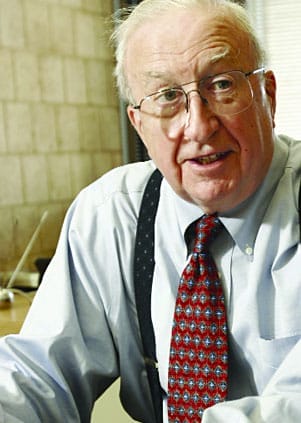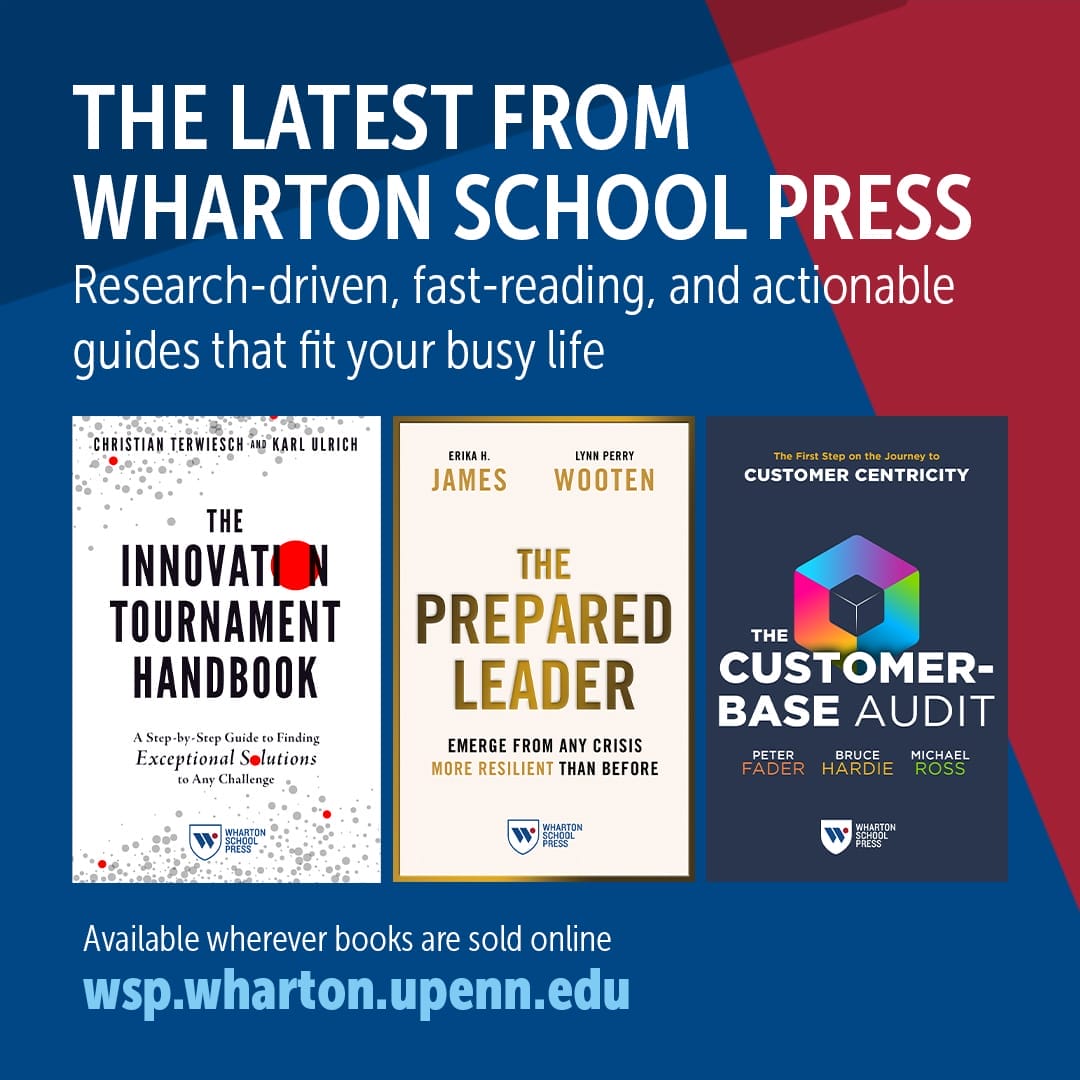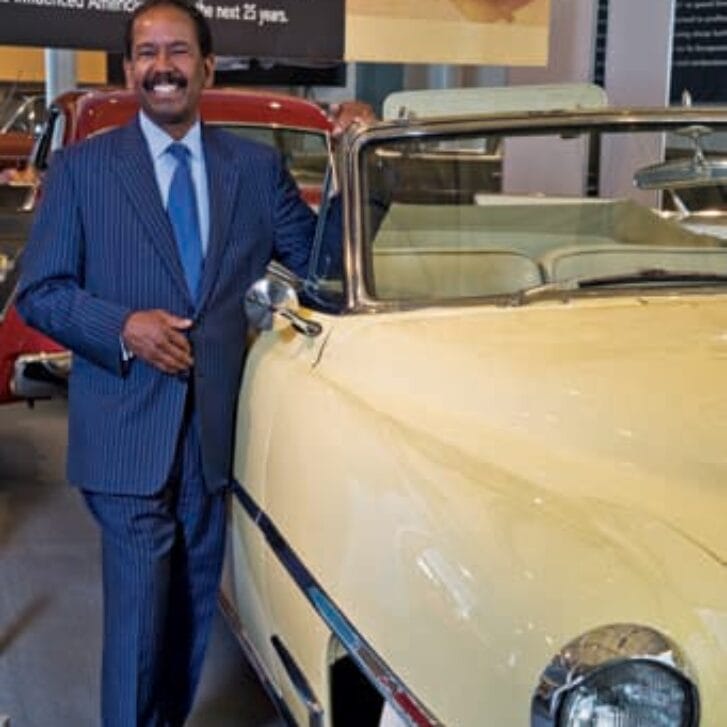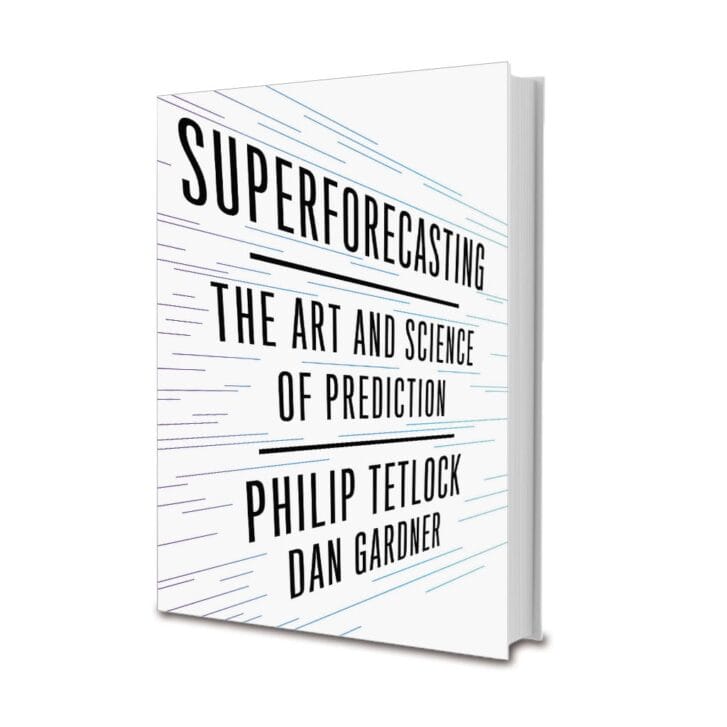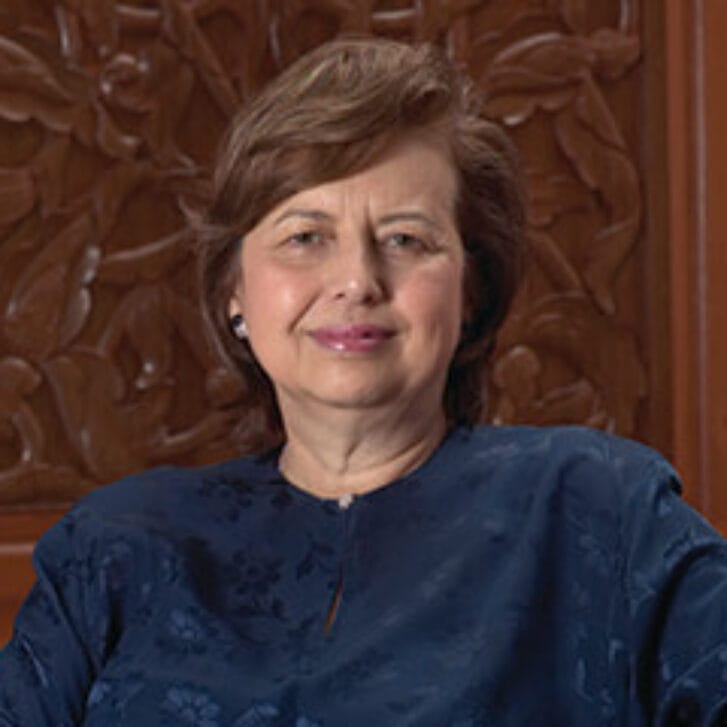By Tim Hyland
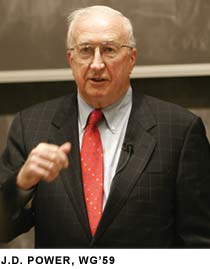 Soon after earning his Wharton MBA in 1959, J.D. Power landed a plum position with the Ford Motor Company, which in itself was something of a miracle.
Soon after earning his Wharton MBA in 1959, J.D. Power landed a plum position with the Ford Motor Company, which in itself was something of a miracle.
Power had graduated in the midst of a deep recession that had hit Detroit especially hard. Job cuts had swept through the industry. Power recalls his office being awash in pink slips.
But even during those hard times, Power says he never imagined the American auto industry would ever fall quite so far as it has today, with both General Motors and Chrysler on the brink of collapse and Ford battling massive problems of its own.
“To see what’s happening today with Chrysler and what’s happening to General Motors, I don’t think anyone would have ever believed it,” says Power, founder of the market research firm J.D. Power & Associates, who returned to Wharton in May to celebrate his 50th class reunion.
The weekend was Power’s first-ever Wharton Reunion event, and he marked the occasion by addressing his classmates during a special Saturday luncheon that also featured remarks by Dean Thomas Robertson and a performance by the Penn Glee Club. Power took a few minutes to chat with us about the value of his Wharton years, his advice for the new graduates, and his thoughts on the American auto industry.
This is your first Reunion weekend. How does it feel to be back?
I’ve been back a few times but not for alumni events. I really find it unbelievable how many [new] buildings there are. I arrived yesterday in the afternoon, during rush hour, and I couldn’t believe all of the activity going on, especially during this economic downturn. So I’m glad to see the whole university is so very vibrant.
You’ve had a long and successful career. How do you think your Wharton experience helped you along the way?
I think certainly graduate school was very important for me. I learned a lot about the career I eventually took market research. Dr. Blankerts, who was head of that division at the time, taught a market research class that really helped me understand what I wanted to do. It had a lot to do with me eventually starting J.D. Power & Associates.
I feel the Wharton program in the late 1950s was much more geared to what I needed to have. I was a liberal arts major and then served four years in the Coast Guard and then I was off to graduate school and I didn’t know what I wanted to do. I think the program they had was very intense and multifaceted. I learned a lot every day.
Do you have any advice for graduating students either MBAs or undergraduates as they head out into the workplace during this challenging time?
Yes. Don’t let [the downturn] interfere with what you eventually want to do. I was hired by the Ford Motor Company in 1959. That was 50 years ago the tail end of another recession and it was perhaps one of the best things that’s ever happened to me, to get that assignment. I can remember [at Ford] they couldn’t find the application forms [for new jobs]. They only had the pink slips, because they had been letting so many people go. To have that kind of situation, where we had to actually search around for the job applications, that was very eye-opening.
Do you feel you learned anything by starting your career in hard times?
Oh sure. What a person does, I think, is learn every day. Actually, Ford hired me in the financial division, and that’s not what I wanted. I wanted marketing. But they told me that if I went through the training program for two years, it would advance me well. So I took it and I learned a whole heck of a lot, just like in school.
Your company has been studying the auto industry for decades. What is your opinion on what happened to the American automakers?
I think our company zeroed in on the problems that they had back 40 years ago. And it just took them a long time to understand what was happening. It was the fact that they were building cars and pushing them out the door and the people were buying them [because] they had no choice. There were the Big Three plus American Motors. And [the companies] got comfortable with their efforts and didn’t look at what was really going on. Then the Japanese came in with a much better product. We’ve worked with all the auto companies. But Toyota was my very first client out in California, and I could see that they were really going to do a job on the U.S. market.
That being said, could you have ever imagined that the Big Three would get to this point?
No, no, no. When I arrived in Detroit, actually, General Motors was being threatened by a Michigan senator [Philip Hart] to be split up. He wanted to take Chevrolet away from General Motors in order to make a more competitive marketplace. General Motors had close to if not more than 50 percent of the market at that time. That was 1959. So things have changed dramatically over the past 50 years.
Ultimately what kind of future do you see for the American automakers?
I don’t think [Chrysler and GM] have any choice. I think they’ll have to declare some form of restructuring through bankruptcy. And this will then put pressure on Ford, which has been avoiding taking any government money, at least in the last few months. I think my prediction would be that GM, Ford and Chrysler will be lucky to retain 18 percent of the U.S. market, of which they used to have 80 percent. It’s a restructuring. We’re into a new situation now. Globalization is going to take hold and I think we’re going to see positive things eventually. Any time you have major restructuring changes like this, a lot of people get hurt. There will be some winners, though.




















